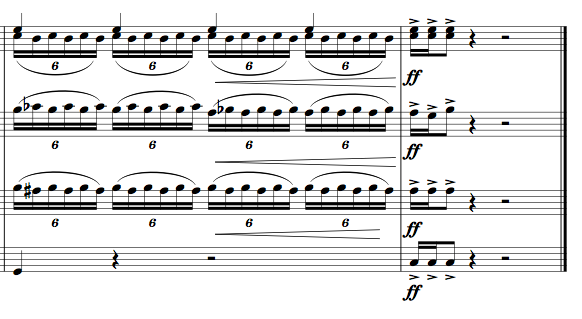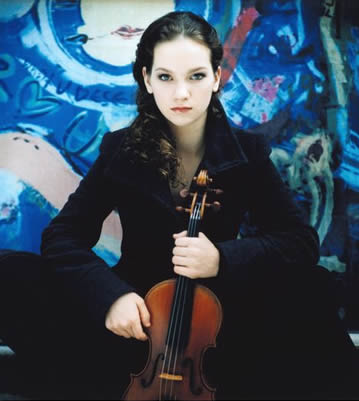Battle Chorale at the SF Conservatory
Choral writing is the foundation of Western music, the genesis of counterpoint, and the basis for functional harmony as we know it. Writing for chorus (as well as singing in a chorus, regardless of vocal abilities) was a requirement for compositions students of Nadia Boulanger, (as well as in the European American Music Alliance program where I studied two years ago). It’s not surprising that David Conte, a student of Boulanger would continue this tradition in his own pedagogy with the San Francisco Conservatory of Music, in the form of a biennial choral composition competition. Last week was the ninth such competition with a total of 19 pieces vying for cash prize and bragging rights.
Each piece was performed by either the Conservatory Chorus Vocal Ensemble, the San Francisco Choral Artists, or the International Orange Chorale. (It wasn’t clear how the pieces were assigned to the ensembles, but it did seem like the more straightforward pieces went to the Conservatory Chorus). Before the performance, the composers would speak briefly about the piece, often explaining their choice of text and the ideas behind their settings.
I was surprised that for the vast majority of composers, this was their first time writing a choral piece. I would have expected that such a requirement would have come up earlier in their studies, especially considering the importance of choral writing in the western tradition. Choral pieces (and to an even greater extent, string quartets) are are a true test of a composer’s harmonic imagination, since the homogeneity of the voices robs the composer of the expended timbral palette of an orchestra to add color and interest. (This is less true in these days of extended vocal technique, as evidenced by Roomful of Teeth). All you’ve got to develop your ideas are the notes, without any flashy brass or blasts of percussion to hide behind.
The quality of the pieces, as one would expect, were varied. All of them showed a good sense of vocal writing and a decent ear for harmony. A few suffered from a lack of a direction, without strong gestures to grab the ear, orient the listener, and give a sense of departure, arrival, or development. Anne Polyakov’s treatment of Susan Griffin’s Summer Night showed a sensitivity to the text, the music nicely illustrating the images in the poems. It was fun to hear both Kyle Randall and Marko Bajzer with different approaches to the same text, Lorca’s Landscape, although Bajzer’s odd choice to end his setting with a lone alto singer intoning the final few words of the poem left the audience wondering if someone had perhaps made a mistake… perhaps someone had.
Jan Stoneman’s Kyrie eleison was the first piece of the evening to use extended techniques, with whispered text and pitch bending glissandi evoking a moving and otherworldly reverence. It, along with Nick Benavides wonderfully structured and harmonically imaginative setting of e.e. cummings i thank you God for most this amazing day, were the most arresting pieces of the evening. (Although I wish Benavides had done something more arresting with cummings’s explosive “yes” at the close of the first stanza). The judge’s tastes were well aligned with mine. They declared both Stoneman’s and Benavides’s works, along with Shase Hernandez’s setting of Walt Whitman’s As Adam Early in the Morning, in a three way tie for first place, the first time the prize was split evenly in the event’s history.
As the crowd pounced on the buffet table at the closing reception, there was some speculation around what the competition would look like in two years. The SF Conservatory is changing quickly. David H Stull has been the president for just under a year and has a strong vision for the future of the school. David Conte is becoming the chair of the composition department, stepping in for Dan Becker, and a replacement hasn’t yet been announced for Conrad Susa, who we lost last winter. But with Conte at the helm, and Ragnar Bohlin of the SF Symphony Chorus taking over conducting duties for the Conservatory Chorus, it seems certain that the choral tradition will remain integral to the program.



